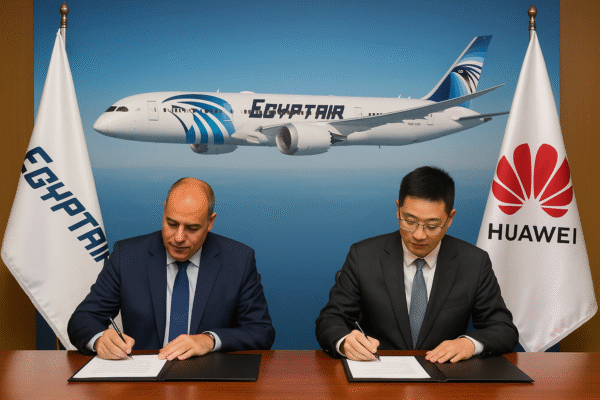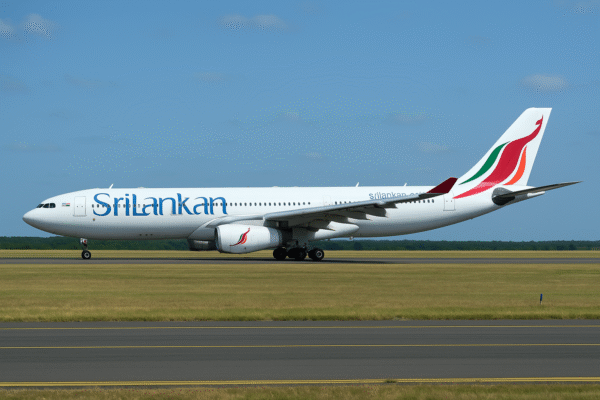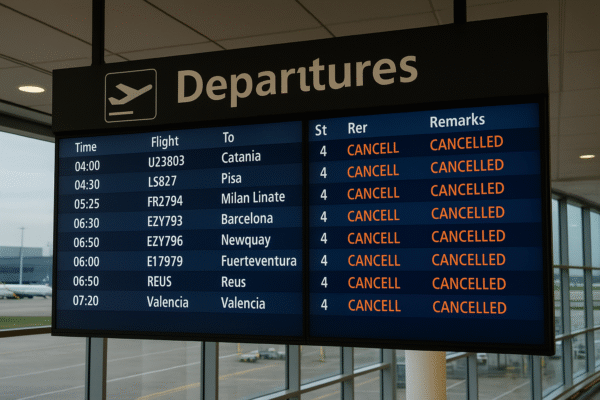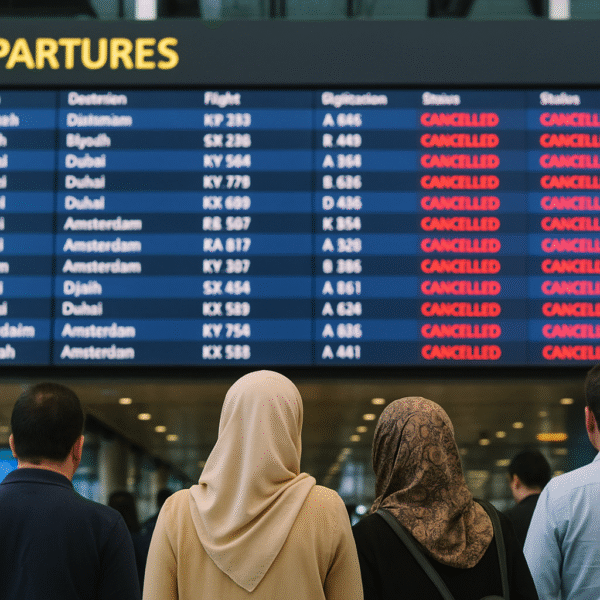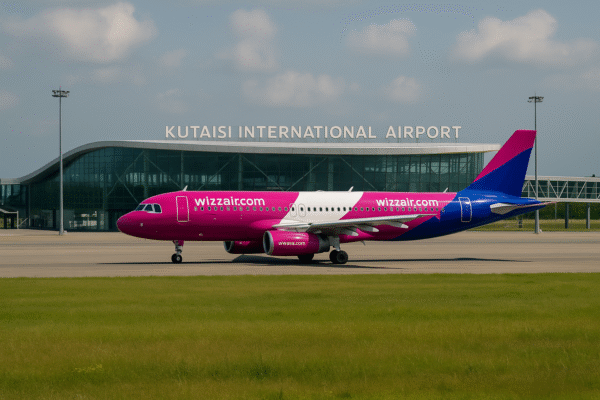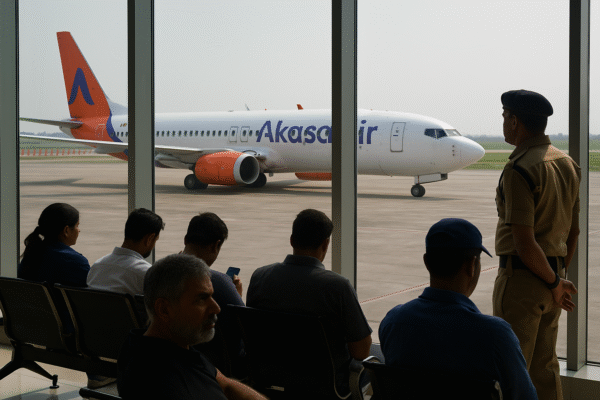India’s domestic aviation system faced a significant disruption on July 9, 2025, when Akasa Air flight QP 1629, operating from Goa to Delhi, was diverted mid-flight to Jaipur due to severe weather conditions. What followed was a frustrating and prolonged delay lasting more than 12 hours, caused by mandatory crew rest regulations enforced by India’s Directorate General of Civil Aviation (DGCA). The ordeal has ignited concerns about passenger care, airline preparedness, and crisis management protocols.
Weather Forces Mid-Air Diversion to Jaipur
Flight QP 1629 departed Goa International Airport (GOI) bound for Delhi (DEL) on the evening of July 9. However, adverse weather over northern India, including heavy rain and low visibility at Indira Gandhi International Airport (DEL), prompted air traffic control to instruct a diversion to Jaipur International Airport (JAI) as a safety measure.
This move aligns with DGCA’s safety-first policy, which allows diversions if meteorological conditions pose risks during landing or approach. According to the India Meteorological Department (IMD), Delhi NCR experienced intense monsoonal activity on July 9, leading to multiple diversions and delays at IGI Airport.
DGCA Crew Duty Rules Ground Flight at Jaipur
While diversions are not uncommon, the situation escalated due to crew scheduling limitations. Indian aviation law mandates strict duty-time limits for pilots and cabin crew, prohibiting further flight operations once a crew exceeds their maximum allowable hours.
With no reserve crew stationed in Jaipur, Akasa Air was legally bound to wait until the original crew completed their required rest period. As per DGCA Civil Aviation Requirements Section 1 – Series J Part VIII, flight crew must receive at least 10 hours of rest in such scenarios. Consequently, the flight remained grounded until July 10, taking off at 6:42 PM and landing in Delhi at 7:38 PM—a delay surpassing 12 hours from its original schedule.
Passengers Report Subpar Accommodation and Poor Communication
Passengers deboarded hours after landing in Jaipur and were transported to hotels arranged by the airline. However, multiple travelers expressed dissatisfaction on social media platform X (formerly Twitter), complaining about unhygienic conditions, limited access to food, and lack of clarity from airline staff.
One passenger wrote: “We were left in a rundown hotel with barely edible food and no updates from Akasa. Safety is important, but where’s the empathy?”
These complaints echo longstanding frustrations in India’s domestic aviation sector regarding the standard of accommodations provided during extended disruptions and the absence of transparent real-time communication.
Akasa Air Responds: “Safety First, Always”
In response, Akasa Air issued a formal statement confirming the timeline of events and citing adherence to safety protocols. The airline reiterated that the diversion was made in the interest of passenger safety due to severe weather in Delhi and that the extended delay was enforced under DGCA crew duty hour regulations.
“We regret the inconvenience caused to our passengers. The crew had reached their regulatory duty limit, and as per aviation safety norms, were not permitted to operate further. Safety remains our top priority,” the airline stated.
While the airline acknowledged the disruption, it fell short of addressing widespread complaints about the quality of accommodations and the lack of timely information during the delay.
Broader Questions on Airline Preparedness and Passenger Rights
This incident has reignited calls from consumer advocacy groups and aviation experts for Indian carriers to overhaul crisis preparedness protocols. With India’s domestic air traffic growing steadily, airlines are under increasing pressure to implement standby crew arrangements at diversion airports, upgrade accommodation standards, and enhance digital communication tools.
Ajay Awtaney, a prominent Indian aviation analyst, noted, “Airlines must adapt to the reality of climate disruptions. Having standby operations and clear passenger care protocols is not a luxury—it’s essential.”
The Ministry of Civil Aviation has previously outlined draft guidelines encouraging improved handling of flight disruptions, including compensation, lodging, and communication obligations. However, enforcement remains inconsistent across carriers.
India’s Weather-Driven Travel Challenges on the Rise
Weather-related flight delays and diversions have surged across India in 2025, largely due to erratic monsoon activity. In June and July alone, Delhi’s IGI Airport recorded over 70 diversions and hundreds of delays, according to Airports Authority of India (AAI) data. Experts suggest that worsening climate patterns will require long-term adaptation strategies for Indian aviation, including real-time weather routing systems and advanced predictive scheduling.
For Akasa Air, A Crucial Learning Moment
As one of India’s newest low-cost carriers, Akasa Air has gained early attention for its modern fleet and affordable services. However, this high-profile delay reveals potential gaps in its operational readiness. Strengthening crisis response teams, enhancing hotel partnerships, and introducing automated passenger notification systems could improve customer confidence.
Conclusion: A Necessary Wake-Up Call for Indian Aviation
Akasa Air’s July 9 diversion and subsequent delay are a stark reminder that while safety remains paramount, passenger experience cannot be an afterthought. Airlines must strike a delicate balance between regulatory compliance and compassionate customer service—particularly as climate variability continues to disrupt traditional flight paths and schedules.
As India’s skies grow busier and weather disruptions become more frequent, proactive investment in operational resilience, communication technology, and customer care infrastructure will be vital to maintain traveler trust in the country’s burgeoning aviation sector.
For more travel news like this, keep reading Global Travel Wire

